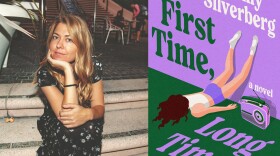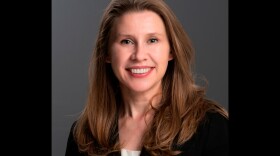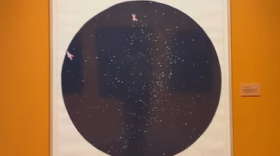-
Players Circle Theater is adding additional performances of “Over the Taven” due to overwhelming demand. At the same time, the theater company is preparing for the next production of its seventh season: Amy Herzog’s contemporary family drama “4,000 Miles.” We’ll explore both shows, plus more on the horizon from Players Circle Theater.
-
On this episode, we hear from Amy Silverberg, a stand-up comedian in addition to being a novelist. Her first novel, First Time, Long Time, is out now.
-
In 2016 the nonpartisan global policy think tank RAND Corporation published a piece called "The Russian "Firehose of Falsehood" Propaganda Model: Why It Might Work and Options to Counter It" that outlined ways Russia was flooding the internet and social media with false claims, and why this technique — which featured a lack of consistency or relationship to truth — was effective in both creating confusion and getting people to tune out because there was just too much information swirling around. We talk with one of the researchers behind the 2016 perspective to learn how it came about, how they did their research, and what it means through the lens of today, far beyond Russian propaganda.
-
Dr. Stephen Knott has spent his career learning about, teaching about, and writing about Presidents of the United States of America. He is a Professor of American History & Government at Ashland University in Ohio, and Emeritus Professor of National Security Affairs at the U.S. Naval War College. He is the author of eleven books dealing with the American Presidency, the early republic, and American foreign policy. His latest, which is due out in May, is “Conspirator in Chief: The Long Tradition of Conspiracy Theories in the American Presidency” which details through extensive research and citations the ways, according to his telling, eight United States Commanders in Chief used conspiracy theories to advance their causes. They were examples, Dr. Knott would say, of the kinds of demagogues the country’s founders were concerned could someday take on the role.
-
In collaboration with Theatre Conspiracy, the Laboratory Theater of Florida’s 17th season continues with performances beginning next week of August Wilson’s realist drama “Two Trains Running.” We’ll explore the production and the play’s broader themes of racial and economic injustice, memory, history and reckoning in a conversation with director Sonya McCarter and assistant director Shontae White.
-
Found on the northern end of Marco Island in 1896 during an expedition led by a renowned archeologist named Frank Hamilton Cushing, the Key Marco Cat is considered a true gem — a once in a lifetime, or more, find — discovered during the early days of the science of archeology. Just six inches tall and carved out of some sort of hardwood, the Cat, and the many other objects that were discovered alongside it, represent the most comprehensive and spectacular collection of pre-Columbian Native American material culture ever discovered in Florida.
-
Craig Pittman is a native Floridian who has written about Florida and Floridians and them any, shall we say, unique characteristics they both have. He covered environmental issues for the Tampa Bay Times for more than two decades and he now writes a weekly column for the nonprofit newsroom Florida Phoenix, and he co-hosts the “Welcome to Florida” podcast. Pittman is author of “Oh, Florida! How America's Weirdest State Influences the Rest of the Country,” and 2020’s “Cat Tale: The Wild, Weird Battle to Save the Florida Panther.” He’ll be in town on Wednesday to give a talk about Florida panthers at the Unitarian Universalist Congregation of Greater Naples so we get a preview.
-
The Wasmer Art Gallery at FGCU is hosting an exhibition of works by multidisciplinary artist Onajide Shabaka titled “Becoming Tomorrow’s Dream.” Shabaka’s work is deeply rooted in historical, cultural, and ecological narratives often exploring themes related to the African diaspora, collective memory, history, anthropology, and ethnobotany. We will talk with Shabaka about the exhibit and his broader artistic practice.
-
Beth Macy's latest book is Paper Girl, which explores the deep divisions in the U.S. It was recently nominated for a National Book Critics Circle Award. Her book Dopesick was made into an Emmy-winning series on Hulu.
-
Dr. Raymond DePaulo began as a student at the Johns Hopkins University School of Medicine in 1968 and went on to become an M.D. in 1972 and then did his residencies there. He founded the Affective Disorder Clinic in 1977 and these days he’s co-director of the Johns Hopkins Mood Disorders Center. He was on the Florida Gulf Coast University campus to give a talk for the university’s Provost’s Seminar Series so stopped by the studio for a conversation about his work and career and the changes he’s seen over the past 58 years. He also spoke with the Naples Discussion Group while he was in town.
Play Live Radio
Next Up:
0:00
0:00
Available On Air Stations










